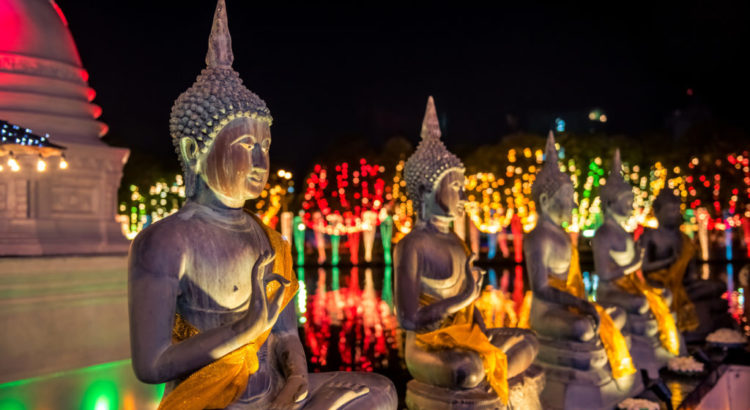Vesak is a sacred celebration in Buddhism. While Sri Lanka celebrates Vesak on 29th and 30th April, the international community celebrates it on 29th May this year. Vesak commemorates Lord Buddha’s birth, enlightenment and passing away. The UN General Assembly – resolution 54/115 of 1999 internationally recognized Vesak to acknowledge the contribution of Buddhism towards spiritual well-being of humanity.
“On this day of Vesak, let us celebrate the wisdom of Lord Buddha by taking action for others with a strong spirit of solidarity.”
~António Guterres (UN Secretary-General)
Vesak according to Buddhism
Lord Buddha aka Siddhartha Gautama was born in Lumbini, near the borders of Nepal. He lived, taught, and founded a monastic order during the Mahajanapada era during the reign of Bimbisara around 400 BCE (Rawlinson, 1950). However the precise times of his birth and death are uncertain. Lord Buddha found and preached the philosophy of Buddhism. According to Dhamma Vicaya Buddhism offers an impartial investigation of nature and is also described as rational and non-dogmatic. According to Kalama Sutta there is a sound link between Buddhism and the scientific method whereby its practitioners are even taught to make proper assessment of evidence, rather than rely on faith, hearsay or speculation (Padilla, 2008).
Fundamentals of Buddhism
Teachings of Buddha and practicing this philosophy has its benefits. Because its centralized around humanity, compassion, forgiveness, renouncing hatred and attaining peace of mind through meditation. Dalai Lama, Tenzin Gyaltsen, and Padmasiri de Silva are among a few noteworthy names that have promulgated the benefits of Buddhist meditation as a therapeutic practice to live a good life. Javier Perez de Cuellar quotes that “Peace, understanding and a vision of humanity that supersedes national and other international differences are essential if we are to cope with the complexities of the nuclear age”.
Buddhism Today
Today religion is highly politicized and commercialized. It is important to spread the message that even Buddha never condoned forcible conversions or violence. Instead, Buddha left it open for the public to either accept or reject the teachings. Most importantly he encouraged to critically inquire even what he taught and preached. It is important to appreciate the original teachings of Buddha and internalize the philosophy. The focus on mindless ritualistic practices have diminished the essence of the fundamentals. Buddhists around the world have an important role to play in learning the philosophy, practicing the teachings and living a good life in peace and harmony.


